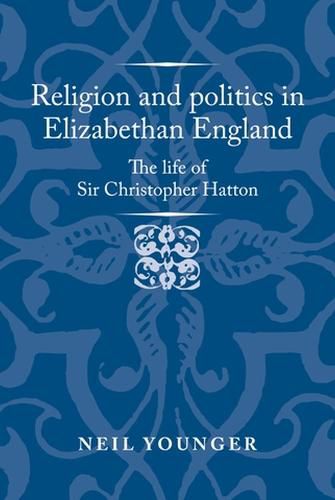Readings Newsletter
Become a Readings Member to make your shopping experience even easier.
Sign in or sign up for free!
You’re not far away from qualifying for FREE standard shipping within Australia
You’ve qualified for FREE standard shipping within Australia
The cart is loading…






This book reassesses the religious politics of Elizabethan England through a study of one of its most unusual figures. Sir Christopher Hatton, a royal favourite turned senior minister, was unique among Elizabeth’s leading ministers in being a consistent supporter of English Catholics and perhaps even some kind of Catholic himself. His influence over the queen was a significant factor in restraining the policy preferences of Elizabeth’s more strongly Protestant advisors, particularly as regards the regime’s religious policy. The book traces Hatton’s life and career, his relationship with Elizabeth, his networks and his involvement in politics. It argues that Hatton’s career casts doubt on claims that Elizabeth’s regime was exclusively Protestant in character and suggests that Catholics and Catholic sympathisers retained a voice in Elizabethan politics. – .
$9.00 standard shipping within Australia
FREE standard shipping within Australia for orders over $100.00
Express & International shipping calculated at checkout
This book reassesses the religious politics of Elizabethan England through a study of one of its most unusual figures. Sir Christopher Hatton, a royal favourite turned senior minister, was unique among Elizabeth’s leading ministers in being a consistent supporter of English Catholics and perhaps even some kind of Catholic himself. His influence over the queen was a significant factor in restraining the policy preferences of Elizabeth’s more strongly Protestant advisors, particularly as regards the regime’s religious policy. The book traces Hatton’s life and career, his relationship with Elizabeth, his networks and his involvement in politics. It argues that Hatton’s career casts doubt on claims that Elizabeth’s regime was exclusively Protestant in character and suggests that Catholics and Catholic sympathisers retained a voice in Elizabethan politics. – .